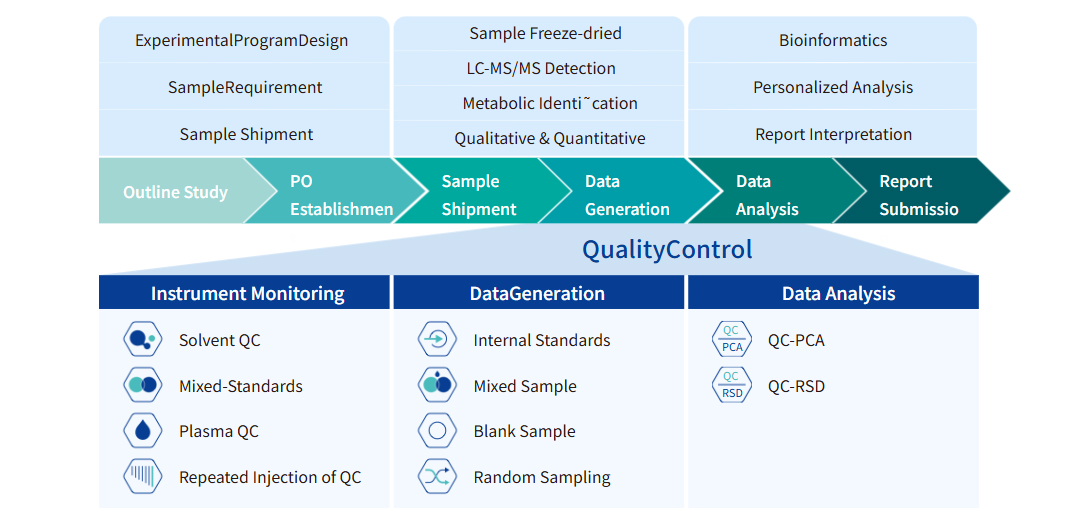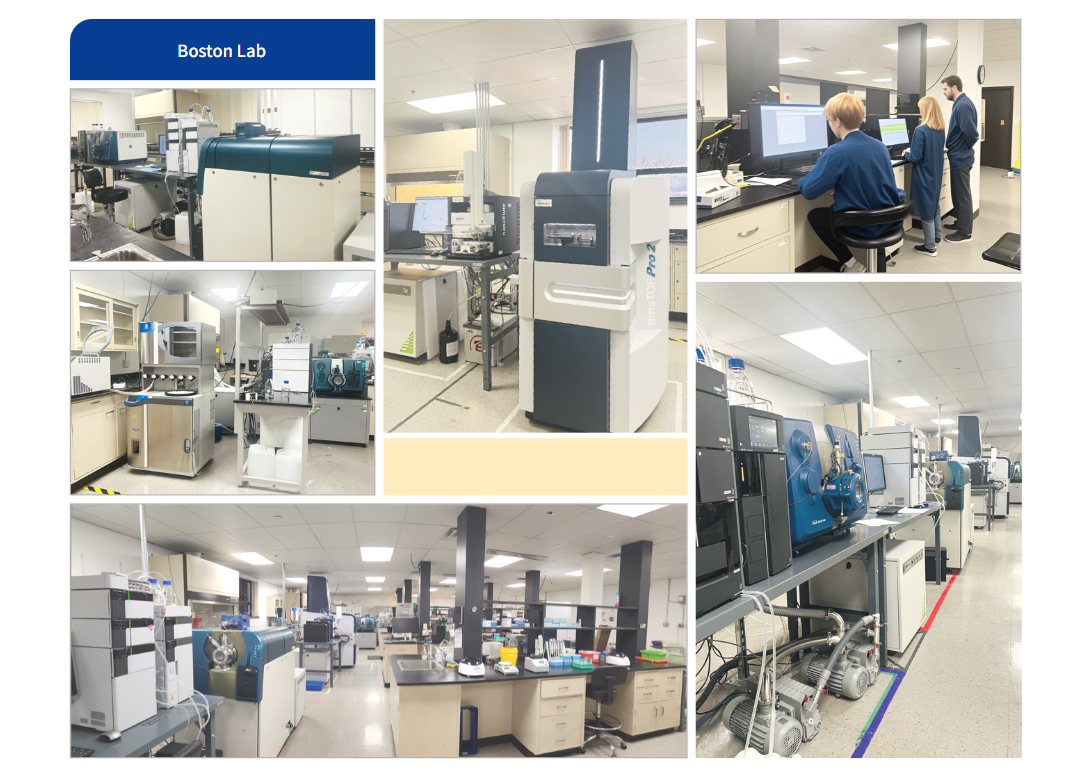About Us

 Global Quantitative Proteomics
Global Quantitative Proteomics
 PRM Targeted Protein Quantification
PRM Targeted Protein Quantification
 Blood Proteome Profiling
Blood Proteome Profiling
 Post-Translational Modification (PTM) Proteomics
Post-Translational Modification (PTM) Proteomics
 Combined Quantitative and PTM Proteomics Analysis
Combined Quantitative and PTM Proteomics Analysis

-
Global Metabolite Profiling Service
Global metabolite profiling via LC-MS is often used for detecting metabolites from biological or environmental samples and obtaining relative quantification in an unbiased manner. The main application is to compare the case group with the control group to find metabolites that show significant differences thereby providing clues to the metabolic pathways and genes that are involved in the process. It is often the first metabolomics assessment in biomarker development, disease pathogenesis, and drug development.
-
Targeted metabolomics is an approach to detect specific compound(s) using QQQ Mass Spec and quantify using chemical standards. This process achieves accurate identification and absolute quantification of the target metabolites. In contrast with global metabolomics profiling, targeted metabolomics is highly specific, sensitive, and accurate to quantify the metabolite of interest in the sample.
-
Lipids are a large class of metabolites in plants and animals (accounting for 70% of metabolites in plasma). It is an essential component in numerous biological functions including membrane structure, energy generation, signaling, gene regulation, and many other developmental processes.
Our metabolomics platform combines proprietary technologies and extensive databases to deliver unparalleled coverage, accuracy, and reliability data.
-
Advanced Identification Strategies
Integrating public and proprietary databases, machine learning algorithms, and high-resolution MS/MS for confident metabolite annotation.

-
Patented Widely-Targeted Metabolomics Appraoch
Combining the advantages of targeted and untargeted strategies — offering high throughput, high stability, and high accuracy in metabolite indentification and quantification.
-
Rigorous Quality Control
10 Data QC Indicators, monitoring all aspects of experimentation from sample perparetion to data analysis.

Choosing MetwareBio means collaborating with a trusted, innovation-driven partner focused on delivering real value to your research:
 Complete Multiomics Solutions: Integrated proteomics, metabolomics, lipidomics, spatial metabolomics, and multiomics joint analysis under one roof.
Complete Multiomics Solutions: Integrated proteomics, metabolomics, lipidomics, spatial metabolomics, and multiomics joint analysis under one roof.
 Actionable High-Quality Data: Integrated proteomics, metabolomics, lipidomics, spatial metabolomics, and multiomics joint analysis under one roof.
Actionable High-Quality Data: Integrated proteomics, metabolomics, lipidomics, spatial metabolomics, and multiomics joint analysis under one roof.
 Free Metware Cloud Platform: Self-service re-analysis, AI-based data interpretation, and intuitive visualization tools to empower researchers.
Free Metware Cloud Platform: Self-service re-analysis, AI-based data interpretation, and intuitive visualization tools to empower researchers.
 Exceptional Customization & Support: Personalized project designs, extensive bioinformatics support, and rapid, responsive customer service.
Exceptional Customization & Support: Personalized project designs, extensive bioinformatics support, and rapid, responsive customer service.
 Proven Research Impact: Over 1,000 successful collaborations across high-impact publications, clinical studies, and industrial applications.
Proven Research Impact: Over 1,000 successful collaborations across high-impact publications, clinical studies, and industrial applications.
 Relentless Innovation: Continually expanding services, platforms, and data interpretation tools to stay at the forefront of omics technology.
Relentless Innovation: Continually expanding services, platforms, and data interpretation tools to stay at the forefront of omics technology.



